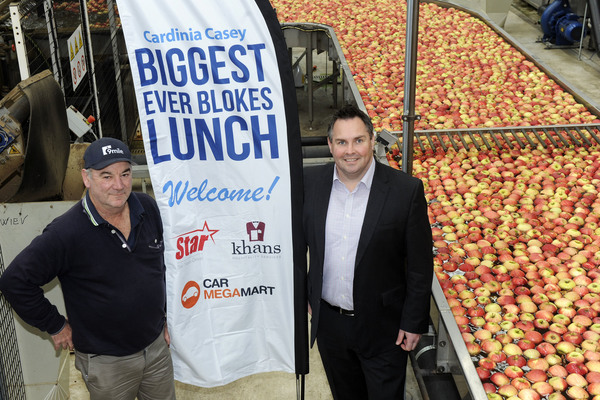
By Garry Howe
Robert Thompson from Nine Mile Fresh loves the concept of the Cardinia Casey Biggest Ever Blokes Lunch.
Not only because the lunches, he says, have raised a total of $230,000 for prostate cancer research over the past three years.
More so because of the awareness they create for one of Australia’s biggest killers of men.
This Friday, 1 September, 480 people will cram into the Cardinia Cultural Centre for the fourth Biggest Ever Blokes Lunch. They will be adequately fed and watered during the afternoon while being entertained by line-up of three comedy acts – and also lectured a bit about their health and the need to be checked for prostate cancer.
Urologist Tony De Sousa from St John of God will speak, as will John Strachan from the Prostate Cancer Foundation of Australia.
A well-known local sporting identity will also share the story of his recent run-in with the disease.
It is this element of the lunch that most impresses Robert Thompson, who lost his father to prostate cancer in the early 1990s.
When his father George was first diagnosed in 1987, neither he nor his family had ever heard of prostate cancer.
“We had no idea what it was – there was not publicity around it like there is now,” Robert said.
Unfortunately, the prognosis was not good for George whose situation was beyond repair. An operation gave him a few more years but he eventually succumbed to the disease in 1992.
That’s why Robert has been so generous in his support of the Biggest Ever Blokes Lunch.
This year he has again donated a Corporate Suite at the MCG for 14 people, which last year proved the most valuable live auction item, being knocked down for more than $6000.
It’s not all about the money, though. One of the major benefits, Rob says, is attracting a crowd of close to 500 predominantly men and exposing them to the risks of prostate cancer.
If only his father had that opportunity back in the late 1980s.







